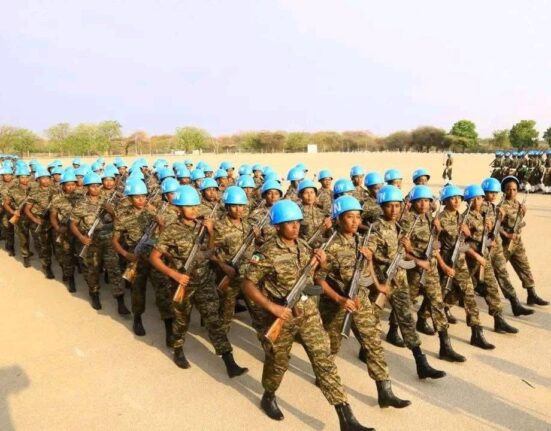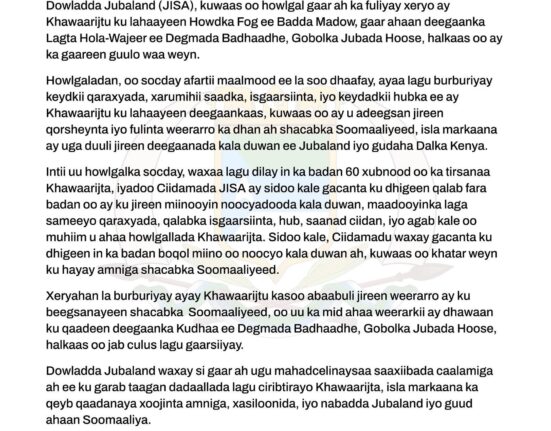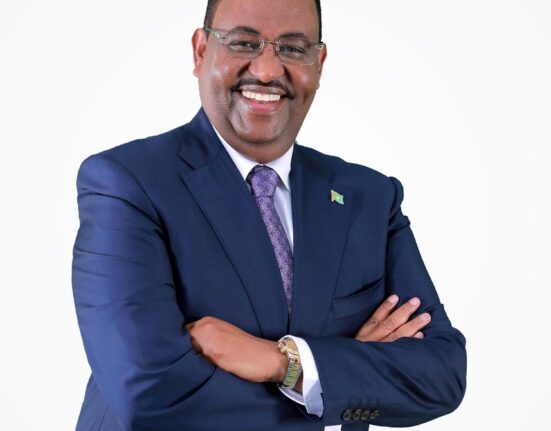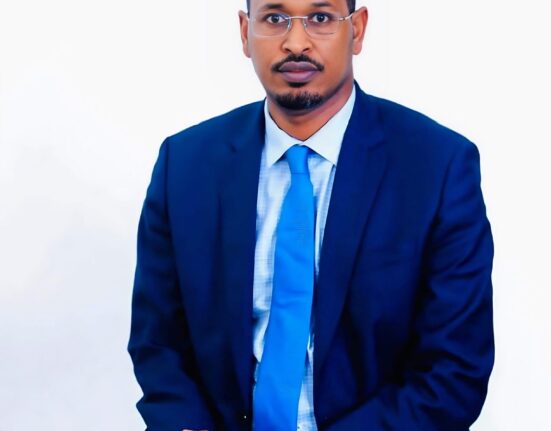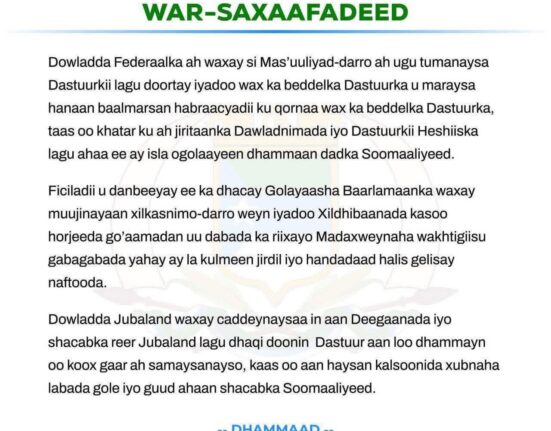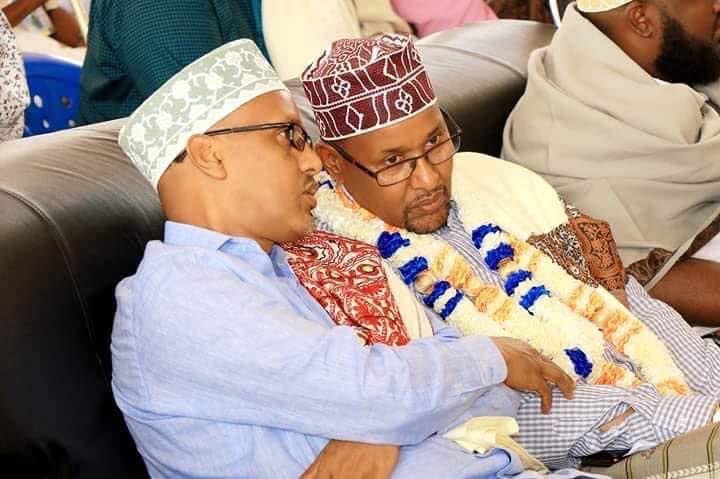
By: Investigative Contributor
Editor’s Note: The following article is based on confidential information shared by a trusted relative of President Mustafe Omar. The source, anonymized as “Farah,” was unaware that the information would reach the public domain. While the details remain unverified, the content sheds light on internal political calculations and clan-based grievances within the Somali Region leadership.
Nairobi, Kenya – A rare and intimate conversation between Somali Regional President Mustafe Omar and his cousin, who resides in Australia and goes by the name Farah, has surfaced, revealing disturbing details about personal vendettas, clan politics, and the president’s strategic approach to dismantling rival power centers within the region.
According to the leaked conversation, Farah met his cousin, President Mustafe Omar, for the first time during a private visit to Nairobi. Having lived most of his life in Australia, Farah admitted limited knowledge of Somali politics. The conversation, which began on a familial and emotional note, quickly turned into a window into the president’s deeply rooted political philosophy and personal grievances.
“He was kind and welcoming at first,” said Farah. “But as we spoke, he opened up about painful stories—especially the death of his brother, Engineer Faisal Omar. He cried as he recalled it, blaming members of the Reer Abdille clan for Faisal’s killing.”
According to Mustafe, the killing of his brother was a politically motivated act—ordered or orchestrated by former regional actors including Abdi Iley, Gurey Fidar, and other Reer Abdille elites such as Abdirahman Maadey. President Mustafe reportedly described Reer Abdille as “a merciless and arrogant clan” that had long monopolized political power in the Somali Region.
“What shocked me,” said Farah, “was how he generalized an entire clan. He linked Faisal’s killing to what he described as the broader massacre of over 5,000 innocent people from the Reer Isaaq clan, calling it a long-standing pattern of oppression.”
When Farah asked what he had done for the victims during his time in office, Mustafe’s answer was stark:
“I didn’t focus on compensation or justice for the victims,” Mustafe allegedly said. “Instead, I waged a quiet political war to dismantle Reer Abdille’s power. I built a coalition of intellectuals and loyalists—like Bashir Garaad and Dolaal Haalhali—and we launched a strategy to isolate and discredit them politically.”
He reportedly outlined a campaign that included manipulating clan dynamics, promoting narratives to unite other Ogaden clans against Reer Abdille, and encouraging Jidwaaq, particularly the Abaskuul, to reclaim lands and assert dominance in contested areas.
“We told Jidwaaq to take back what’s theirs—and they did,” Mustafe reportedly stated. “But recently, some of them turned against me and allied with Reer Abdille. I tried to cause friction between them in places like Mulla Woreda, but it didn’t work.”
Regarding ONLF, Mustafe claimed credit for “dismantling the organization’s strength” through factional manipulation, especially by elevating rival groups over the Maadey faction, which he viewed as loyal to Reer Abdille.
Despite this complex strategy, Mustafe admitted rising opposition and fear of political revenge:
“I can no longer sleep peacefully. The Federal Government wants me to step down, and I know those I marginalized are waiting. I’ve asked for reassignment—either as Ambassador to Australia or as Finance Minister replacing Ahmed Shide. If denied, I’ll seek asylum in Australia. I already have a visa.”
When asked about the consequences for the Reer Isaaq after his departure, Mustafe reportedly said:
“They should defend themselves. I’ve done my part. I recruited a large force of Reer Isaaq in the regional police. I even tried to position Hussein Kasim to take over, but he lacks the strength. What comes next is their burden.”
⸻
The Leak and Its Fallout
The private revelations were shared by Farah with someone he trusted—a fellow Reer Isaaq clan member. Unbeknownst to him, this individual was a staunch opponent of President Mustafe and quietly recorded and shared the conversation.
This leaked dialogue raises serious ethical, political, and communal questions. It exposes a pattern of governance based on clan retaliation, exclusionary politics, and personal vendetta rather than reconciliation, justice, or regional development.
Coming Soon: Part II – The Opposition’s Reaction
The second installment will detail how this information was received within the Reer Isaaq community, particularly among those who see Mustafe’s legacy as a betrayal of the public trust and a deepening of clan divisions.


